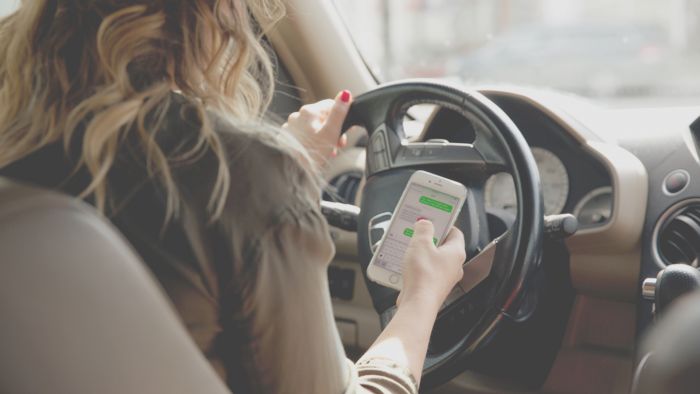Missoula residents and city officials gathered April 25th to consider doubling down on the current law banning the use of handheld devices in the city limits. Before I get into some of the cultural analysis behind this proposal let me just say: I think this is good (in theory). Studies have shown distracted driving due to cell phones is an issue, and a functional society should seek to minimize actual damages to communities. However this law is a cheap band-aide on an issue which has completely consumed our sweaty skinned humanity; it won’t ultimately help. I’m writing more on the issue this exposes in our culture than the actual law-making perspective.
Broadening the Scope
The existing cell phone ban prescribes tickets for people caught texting or making phone calls on a handheld unit while driving. An attorney for the Missoula Attorney’s Office said that due to the vague language of the law, some offenders have been able to get out of their tickets by saying they were just choosing music, using the GPS, etc.
The new law sets out to strangle the loopholes: the new bill “would make it illegal for a driver to use a handheld phone in any way – including entering an address into a mapping app or scrolling through a playlist of songs.” So no touching your phone. Got it. I get it. It’s good.
Opposing Councilwoman said she couldn’t back the bill since just that day she was eating a burrito and changing music on her phone at the same time. She’s quoted saying, “To me, being aware of your surroundings is using good judgment,.”
I also agree with this. I am often equally distracted by my children in the backseat attempting to impale one another other with McDonald’s straws. When I’m eating a Taco Del Sol burrito while driving, I am extremely focused on not actually eating the wonderful aluminum wrapper concurrent with my delicious lunch. When discussing with my wife why pepperoni and mushroom pizza is infinitely better than Canadian bacon and pineapple pizza, we both become a little disengaged from the driving task.
However, we can’t make the previous things illegal. But we can control the phone. It’s a microcosm of our cultural identity. And while I totally agree with the counsel woman’s sentiment, there is a greater problem at hand. Morality and judgment should easily impress obligations, limitations, and common sense into our driving lives. But studies show it’s not happening.
What this law shows is that we can’t trust our cultural morality. Current morality has failed to be what’s good for society.
A Moral Crisis
We’ve all seen the commercials, the billboards, the radio ads and we know the danger is real. We’ve all been texting at times and narrowly missed an accident. We know it! We’ve seen it! And yet we still can’t shake the phone.
What this shows us is that we (myself included) are addicted to personal gratification and unlimited freedom regardless of the consequences. This dilemma can be extrapolated into just about every law driving issue in America right now: I don’t care how this affects, offends, limits, hurts, or inconveniences anyone else so long as it benefits me.
Our phones are intimately catered to the longing of our souls. It is the gateway drug to the repressed ego. We want our friends, our contacts, our news, our music, our control at all times and always. To wait fifteen minutes to know what Ke$ha tweeted is the Babylonian captivity of the modern soul. It’s our world and we want it now, with unlimited data.
We have found unlimited freedom from things humanity has struggled with for generations. Namely location, geography, time and space! We are always connected to everyone everywhere. There is no “logging on” now, we are born logged on. And while this may seem like a good thing, perhaps it is feeding a bad thing: a distracted heart discontent with what is real longing only for what is immaterial and digital.
Pay close attention to what Alastair Roberts says regarding the danger of this constantly connected freedom: “If we are to assess whether our smartphone habits are healthy or not — and this is hardly a question that should be exclusive to young Christian adults! — perhaps a helpful place to start is by challenging the underlying cultural script that typically drives our adoption of new technologies. This script is one that rests heavily on choice and potential as such and the notion of freedom from — upon the removal of constraints, limitations, and restrictions — and is much less attentive to the reality of freedom for — to our being liberated to become more fully and faithfully human in communion with God and each other.”
Our “freedoms” can often hurt us. Freedom “from” the constraints which humanity normally deals with can often limit us from being free to live “for” humanity as a whole. We are so taken up in a quest for satisfaction that not only are we always wanting, but we are always distant, buffering and background browsing.
A Single Image in the Whole Mosaic
Again, the cell phone law isn’t the issue. Our hearts are. And whether we are talking about bathroom usage, abortion, or what to watch on Netflix, our hearts are bent inward in dangerous ways. What the cell phone issue shows is that even though we know the consequences, we are numb to the dangers.
The Bible shows us that there are two things which will shake us out of our inverted bubbles: painful grace and preventative grace.
Look at Jesus’ words to in regards to a tower which had just fallen over and killed many people: “Or those eighteen on whom the tower in Siloam fell and killed them: do you think that they were worse offenders than all the others who lived in Jerusalem? No, I tell you; but unless you repent, you will all likewise perish” (Luke 13:4-5).
The tower in Siloam was a disaster. It was a horrible tragedy, but as Jesus showed us, it was a wakeup call to think outside ourselves. The pain struck the nerve of reality: life is short. It presses the natural limitations that we so desperately want to wish away. What matters is not my personal preference or momentary self-perceived necessity, but my eternal relation towards God. Am I his enemy or his friend? Broad is the chasm between the two and repentance is the bridge.
This painful grace is grace nonetheless, but God also offers preventative grace. Speaking to his people in 2 Chronicles 7:14 God says, “If my people…humble themselves and pray…then I will forgive their sin and heal their land.” In the New Testament John says, “If we confess our sins, he is faithful and just to forgive us and cleanse us from all unrighteousness” (1 John 1:9). This preventative grace calls us to see the disaster on the cross as the first disaster in our own life. It happens by grace when God reveals our need and our inverted hearts to us through the power of the Holy Spirit. The result of such a preventative conviction is that we may turn to God and ask him to free our hearts from our own lust for false gratification and facades of human freedom.
Through both means God is good and kind in rousting our heart from its selfish sloth. Without God we cannot trust our morality because our hearts are incapable of knowing what is really good. But by God’s grace he has given us his word, his church, and the events of our own lives so that we may find our way to him.
Luke tells us that God has planned our lives, our homes, and even our cell phone laws “that they should seek God, and perhaps feel their way toward him and find him. Yet he is actually not far from each one of us” (Acts 17:27). So put down your phone, and turn to God. Cast your anxious and distracted heart to him and he will forgive more than a traffic ticket.




